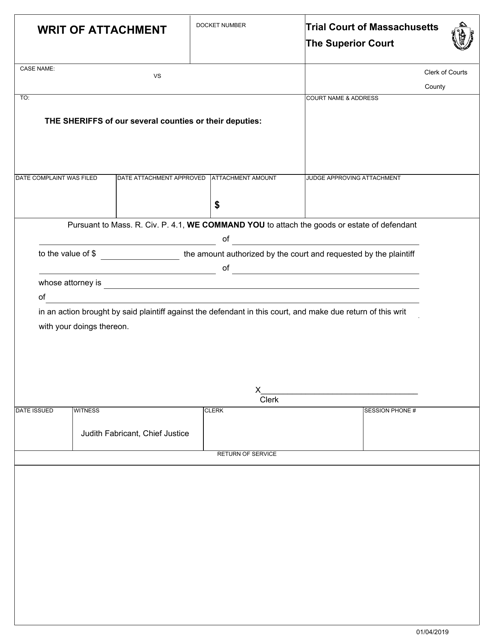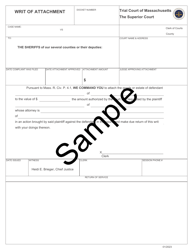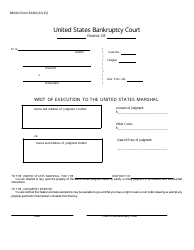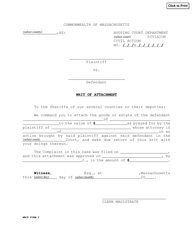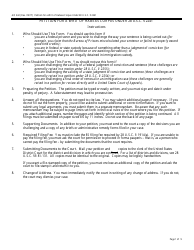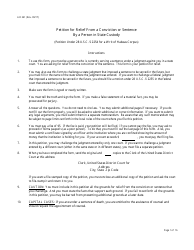Writ of Attachment - Massachusetts
Writ of Attachment is a legal document that was released by the Massachusetts Superior Court - a government authority operating within Massachusetts.
FAQ
Q: What is a writ of attachment?
A: A writ of attachment is a legal order that allows a creditor to seize property owned by a debtor to satisfy a debt.
Q: When can a writ of attachment be obtained in Massachusetts?
A: A writ of attachment can be obtained in Massachusetts when a creditor has a valid claim against a debtor and there is a risk that the debtor may dispose of or hide assets to avoid paying the debt.
Q: What types of property can be attached with a writ of attachment?
A: With a writ of attachment, various types of property can be attached, including real estate, bank accounts, vehicles, and personal belongings.
Q: How is a writ of attachment obtained in Massachusetts?
A: To obtain a writ of attachment in Massachusetts, a creditor must file a lawsuit against the debtor and request a court order for attachment.
Q: Is a hearing required to obtain a writ of attachment in Massachusetts?
A: Yes, a hearing is typically required to obtain a writ of attachment in Massachusetts. The creditor must present evidence to the court showing the validity of the debt and the need for attachment.
Q: What happens after a writ of attachment is granted?
A: After a writ of attachment is granted, the creditor can proceed with the seizure of the debtor's property. The property will be sold to satisfy the debt, and any remaining proceeds will be returned to the debtor if there are any.
Q: What are the limitations of a writ of attachment?
A: There are certain limitations to a writ of attachment in Massachusetts. For example, exempt property, such as a primary residence or necessary personal items, cannot be seized with a writ of attachment.
Q: Can a writ of attachment be challenged in court?
A: Yes, a writ of attachment can be challenged in court. The debtor can file a motion to dissolve or modify the attachment order if they believe it was improperly granted or the debt is not valid.
Q: What are the potential consequences for the debtor if a writ of attachment is granted?
A: If a writ of attachment is granted, the debtor may face the loss of their property and damage to their credit. It is important for debtors to seek legal advice and explore options for resolving the debt before a writ of attachment is issued.
Form Details:
- Released on January 4, 2019;
- The latest edition currently provided by the Massachusetts Superior Court;
- Ready to use and print;
- Easy to customize;
- Compatible with most PDF-viewing applications;
- Fill out the form in our online filing application.
Download a printable version of the form by clicking the link below or browse more documents and templates provided by the Massachusetts Superior Court.
